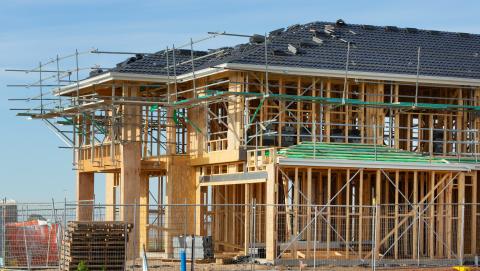
Proposed Legislation on Planning Approvals & Development Charges
Province introduces Protect Ontario by Building Faster and Smarter Act to streamline development approvals
On May 12, the province introduced the Protect Ontario by Building Faster and Smarter Act intended to streamline development approvals and modernize development charges (DCs). The government also announced its intent to consult with municipalities on high impact proposals.
AMO broadly supports provincial efforts to standardize and streamline development approvals to boost housing and economic growth, a shared priority for municipalities. DCs are a critical tool for ensuring that municipalities can fund the infrastructure necessary to support growth, but modernization is needed.
AMO is pleased the proposed legislation includes joint AMO and the Ontario Home Builders' Association (OBHA) recommendations for DC modernization, in addition to other proposals that go beyond AMO recommendations. This legislation is a marked departure from Bill 23, which introduced significant across the board reductions and discounts to DCs. This new bill provides the framework changes and room to consult on how to best accomplish them in future regulations.
AMO welcomes an approach that includes further consultation on a number of key elements to inform the development of regulations. This provides municipalities with a valuable opportunity to provide expertise and shape effective on-the-ground implementation.
Specific bill proposals and announcements include:
- Changes to the DC framework that reflect joint recommendations from AMO and OHBA, including:
- Standardizing some DC calculations like Benefits to Existing and the definition of local services
- Improving the DC freeze model
- Examining how land value is included in DC rate calculations
- Enhancing flexibility across service categories
- Other DC changes not included in AMO recommendations include deferring payment of residential DCs to building occupancy, exempting long-term care homes from DCs, and requiring municipalities to spend or commit 60% of reserve funds for select service categories at the beginning of a given year.
- Standardizing and streamlining planning, including:
- Permitting as-of-right minor variances, four-story townhome units, and K-12 public schools on residential lands
- Standardizing and limiting the number of land use designations in official plans
- Restrictions to Inclusionary Zoning
- Allowing the Minister to impose conditions that must be met before an Minister's Zoning Order (MZO) can come into effect
- Providing guidance to aligning Official Plans with Ministry of Finance population projections
- Standardizing the application of the Ontario Building Code, removing municipalities’ ability to set higher green building standards and making it easier to use innovative construction and materials
- Expanding the definition of priority transit projects and transit-oriented communities to apply to a wider range of provincial projects, and making it easier for the province and municipalities to work together to advance provincial transit and infrastructure development
- Consultation on the expanded use of communal water and sewage systems, modular “off grid” water treatment facilities
- Consultation on the use of a public utility model for water and wastewater service delivery. AMO will continue to advocate for water/wastewater systems to remain public assets, with any shifts to public utility models undertaken voluntarily by municipalities
AMO will participate in the Bill’s Standing Committee process. At oral deputations and beyond, AMO will continue to advocate for predictable, sustainable and adequate funding for municipal infrastructure to support an unprecedented pace and scale of growth, address aging assets and increase resilience to climate change.
Should the Bill receive Royal Assent, AMO will continue to collaborate with our members, OHBA and the province to ensure Ontario’s development framework changes are responsive to local needs and can be effectively implemented.



